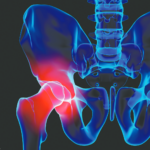
One of the more interesting conversations that we have in our practice surrounds the discussion of alcohol consumption while a patient is prescribed methotrexate. As doctors, we are used to reviewing the risks and benefits of a particular drug—how it works, what kind of results to expect, and which common side effects may occur. The information regarding methotrexate is straightforward. Watch for nausea, mouth sores, and hair thinning and make sure to have your blood work drawn regularly. At this point in the conversation, I raise my admonition for the patient to curtail his or her alcohol consumption. This is a critical moment, a time when the tenor of the conversation can change, sometimes fairly abruptly. Patients are accustomed to hearing physicians discuss what they consider to be medically pertinent issues. For some patients however, this does not include their alcohol consumption, which they consider to be a private matter.

This issue recently came to light following a conversation I had with a patient of mine. Neville is a delightful, seventy-year-old, retired executive with newly diagnosed rheumatoid arthritis (RA). A strikingly tall man, he has traveled the world and describes himself as a “bon vivant.” His name easily identifies him as a British ex-pat and his accent, as he describes it, is “pure Manchester.” He carefully listened to my reasoning regarding the choice of methotrexate as the best treatment option for his RA. All was going well until we came to the discussion of alcohol consumption. I suggested that he restrict his intake to no more than “a few” alcoholic beverages per week. He responded that he liked his nightly martinis (plural!). He seemed puzzled by my advice, but did not say anything more. The following week, Neville e-mailed me this link from a British National Health Service (NHS) website that contained the following nugget:
“National guidelines recommend that patients taking low-dose weekly methotrexate (by any route of administration) should ensure their consumption of alcohol is well within maximum national limits (two to three units a day for women and three to four units a day for men, with at least one or two alcohol-free days per week). Patients with psoriasis or psoriatic arthritis should not drink more than six units of alcohol per week because they may have a higher risk for liver toxicity than those with other inflammatory conditions.”1
